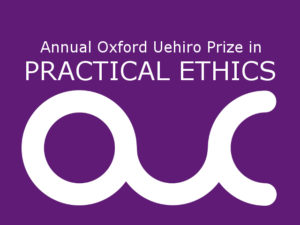Ethical Biological Naturalism and the Case Against Moral Status for AIs
This article received an honourable mention in the graduate category of the 2023 National Oxford Uehiro Prize in Practical Ethics
Written by University of Oxford student Samuel Iglesias
Introduction
6.522. “There are, indeed, things that cannot be put into words. They make themselves manifest. They are what is mystical”. —Ludwig Wittgenstein, Tractatus Logico Philosophicus.
What determines whether an artificial intelligence has moral status? Do mental states, such as the vivid and conscious feelings of pleasure or pain, matter? Some ethicists argue that “what goes on in the inside matters greatly” (Nyholm and Frank 2017). Others, like John Danaher, argue that “performative artifice, by itself, can be sufficient to ground a claim of moral status” (2018). This view, called ethical behaviorism, “respects our epistemic limits” and states that if an entity “consistently behaves like another entity to whom we afford moral status, then it should be granted the same moral status.”Read More »Ethical Biological Naturalism and the Case Against Moral Status for AIs

